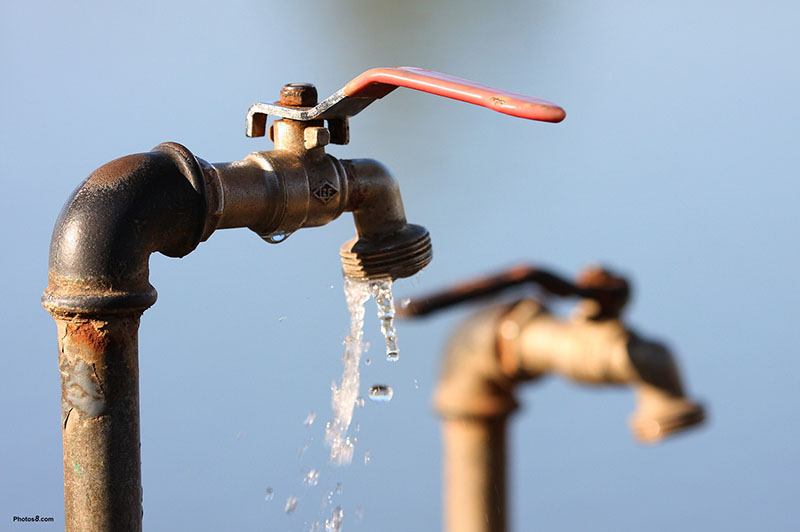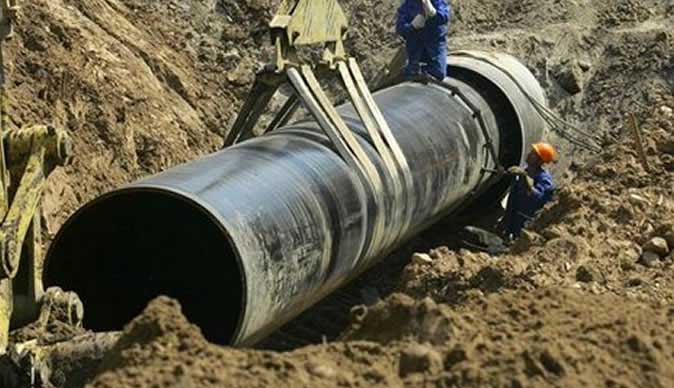REPORT WITH US
WhatsApp: +263 7 18636459
Email: editor@thecitizenbulletin.com
Twitter: @TheCB_News
Facebook: The Citizen Bulletin
“More Local, More Inclusive, More Interactive"

Central government's pledges to rehabilitate local hospitals such as Manama (pictured) have remained largely unfulfill...
Continue Reading...

As Matabeleland faces an impending drought, there are fresh efforts to push for the urgent construction of the Zambezi water project although there is still no consensus on whether the solution lies with private management, the government or a combination of both.
by Lizwe Sebatha
BULAWAYO (The Citizen Bulletin) — Funding for the Matabeleland Zambezi Water Project (MZWP) can only be guaranteed if the initiative is privatized or if government releases coal and gas concessions that fall along the pipeline to enable prospective investors to raise the greenback needed to undertake the project, pundits say.
The ambitious project to pipe water from the mighty Zambezi River, 452 kilometers away from Bulawayo, was first mooted by the colonial government in 1912 to ease perennial water challenges in the arid Matabeleland region.
The project estimated to cost approximately US$500 million has failed to kick off under Zimbabwe’s post-independence government.
In his 2020 budget speech, Finance and Economic Development minister, Mthuli Ncube pledged to allocate $Z400 million dollars for the Gwayi-Shangani dam project — which is a key component of the MZWP. But the cash-strapped government is yet to release the funds.
The Zimbabwe government is currently struggling to pay civil servants and fund major sectors such as health and education.
Now, as the Matabeleland region faces an impending drought, there are fresh efforts to push for the urgent construction of the water project, although there is still no consensus on whether the solution lies with private management, the government or a combination of both.

File image: More than a century later, the Matabeleland Zambezi Water Project is still in limbo
A board member of the Matabeleland Zambezi Water Trust (MZWT) Phanuel Sibanda told this local news wire in a recent interview that the solution lay on privatizing the project to ensure guaranteed funding.
“Privatization is an open route that will guarantee funding as most international interest in big infrastructure projects such as this one depends on whether or not these projects deliver an export revenue stream, and of which coal and gas does guarantees export revenues,” Sibanda said.
“We were once promised funding (by interested investors) for the project but on condition that the government releases coal and gas concessions to the investor to enable the construction to self-fund. However, nothing materialized because of government’s refusal,” he added.
Government returned ownership of the MZWP to the Matabeleland Collective, a grouping of civic society groups in the region, and its technical partner the MZWT in April 2019. This followed a meeting the MC had with Mnangagwa at the Bulawayo state house in March 2018.
Former President Robert Mugabe’s administration had forcibly grabbed the project and nationalized it following reports that MZWT officials were looting government grants channeled into the Trust to spearhead the water project.
But after the clumsy takeover, the government also failed to spearhead the commencement of the project. Sibanda said the government has failed to walk the talk with regards to finding funding partners for the project even under Mugabe’s government administration.
“We should be moving towards private investment and domestic resource mobilization. For example, private equity funding, which is when institutions inject capital for example into the MZWP project and acquire equity ownership, can be the only lifeline of funding for this water project,” Sibanda added.
However, former Water Resources Development and Management Sipepa-Nkomo insisted the government must take control of the project.
“It is the government’s responsibility to complete the project, but the MZWT want it privatized. I sincerely believe that the project will succeed openly if the government takes full ownership,” Nkomo said citing the Tokwe-Mukosi project in Masvingo as an example of a government spearhead initiative.
In February 2017, the government diverted funds set aside for the MZWP to Tokwe-Mukosi, triggering the ire of Matabeleland communities who felt authorities were deliberately sidelining projects in the region.
In 2012 Nkomo had renamed the MZWP the National Matabeleland Zambezi Water Project with the hope that if the project is “nationalized” authorities will give it much attention, but this did not change anything as US$864 million which the government claimed had been secured from China Exim Bank was never released.
Effie Ncube a political analyst from the region believes politicians from the region can push for the commencement of the project if they unite and speak against one voice in parliament and other government forums.
“What the MZWP needs is unity and fearlessness of parliamentarians such as Joshua Malinga, (Dumiso) Dabengwa and Sikhanyiso Ndlovu who remained so focused on Matabeleland development regardless of their political affiliations.
“They spoke with one voice and were very vocal about this project,” Ncube said. His sentiments were echoed by renowned community activist Mbuso Fuzwayo.
“If they (legislators) could unite to threaten not to pass a budget because of vehicles they wanted, surely, they can extend the same to the MZWP.”
Upon completion, Gwayi-Shangani will become the country’s third largest inland water body after Tokwe-Mukosi and Lake Mutirikwi. Officials from the Ministry of Environment, Water and Climate had not yet responded to an email request for comment at the time of publication.
This website uses cookies that are necessary to its functioning and required to achieve the purposes illustrated in the privacy policy. By accepting this OR scrolling this page OR continuing to browse, you agree to our privacy policy.